- Home
- Vladimir Nabokov
Lolita Page 8
Lolita Read online
Page 8
17
Gentlemen of the jury! I cannot swear that certain motions pertaining to the business in hand--if I may coin an expression--had not drifted across my mind before. My mind had not retained them in any logical form or in any relation to definitely recollected occasions; but I cannot swear--let me repeat--that I had not toyed with them (to rig up yet another expression), in my dimness of thought, in my darkness of passion. There may have been times--there must have been times, if I know my Humbert--when I had brought up for detached inspection the idea of marrying a mature widow (say, Charlotte Haze) with not one relative left in the wide gray world, merely in order to have my way with her child (Lo, Lola, Lolita). I am even prepared to tell my tormentors that perhaps once or twice I had cast an appraiser's cold eye at Charlotte's coral lips and bronze hair and dangerously low neckline, and had vaguely tried to fit her into a plausible daydream. This I confess under torture. Imaginary torture, perhaps, but all the more horrible. I wish I might digress and tell you more of the pavor nocturnus that would rack me at night hideously after a chance term had struck me in the random readings of my boyhood, such as peine forte et dure (what a Genius of Pain must have invented that!) or the dreadful, mysterious, insidious words "trauma," "traumatic event," and "transom." But my tale is sufficiently incondite already.
After a while I destroyed the letter and went to my room, and ruminated, and rumpled my hair, and modeled my purple robe, and moaned through clenched teeth and suddenly--Suddenly, gentlemen of the jury, I felt a Dostoevskian grin dawning (through the very grimace that twisted my lips) like a distant and terrible sun. I imagined (under conditions of new and perfect visibility) all the casual caresses her mother's husband would be able to lavish on his Lolita. I would hold her against me three times a day, every day. All my troubles would be expelled, I would be a healthy man. "To hold thee lightly on a gentle knee and print on thy soft cheek a parent's kiss ..." Well-read Humbert!
Then, with all possible caution, on mental tiptoe so to speak, I conjured up Charlotte as a possible mate. By God, I could make myself bring her that economically halved grapefruit, that sugarless breakfast.
Humbert Humbert sweating in the fierce white light, and howled at, and trodden upon by sweating policemen, is now ready to make a further "statement" (quel mot!) as he turns his conscience inside out and rips off its innermost lining. I did not plan to marry poor Charlotte in order to eliminate her in some vulgar, gruesome and dangerous manner such as killing her by placing five bichloride-of-mercury tablets in her preprandial sherry or anything like that; but a delicately allied, pharmacopoeial thought did tinkle in my sonorous and clouded brain. Why limit myself to the modest masked caress I had tried already? Other visions of venery presented themselves to me swaying and smiling. I saw myself administering a powerful sleeping potion to both mother and daughter so as to fondle the latter through the night with perfect impunity. The house was full of Charlotte's snore, while Lolita hardly breathed in her sleep, as still as a painted girl-child. "Mother, I swear Kenny never even touched me." "You either lie, Dolores Haze, or it was an incubus." No, I would not go that far.
So Humbert the Cubus schemed and dreamed--and the red sun of desire and decision (the two things that create a live world) rose higher and higher, while upon a succession of balconies a succession of libertines, sparkling glass in hand, toasted the bliss of past and future nights. Then, figuratively speaking, I shattered the glass, and boldly imagined (for I was drunk on those visions by then and underrated the gentleness of my nature) how eventually I might blackmail--no, that is too strong a word--mauvemail big Haze into letting me consort with little Haze by gently threatening the poor doting Big Dove with desertion if she tried to bar me from playing with my legal stepdaughter. In a word, before such an Amazing Offer, before such a vastness and variety of vistas, I was as helpless as Adam at the preview of early oriental history, miraged in his apple orchard.
And now take down the following important remark: the artist in me has been given the upper hand over the gentleman. It is with a great effort of will that in this memoir I have managed to tune my style to the tone of the journal that I kept when Mrs. Haze was to me but an obstacle. That journal of mine is no more; but I have considered it my artistic duty to preserve its intonations no matter how false and brutal they may seem to me now. Fortunately, my story has reached a point where I can cease insulting poor Charlotte for the sake of retrospective verisimilitude.
Wishing to spare poor Charlotte two or three hours of suspense on a winding road (and avoid, perhaps, a head-on collision that would shatter our different dreams), I made a thoughtful but abortive attempt to reach her at the camp by telephone. She had left half an hour before, and getting Lo instead, I told her--trembling and brimming with my mastery over fate--that I was going to marry her mother. I had to repeat it twice because something was preventing her from giving me her attention. "Gee, that's swell," she said laughing. "When is the wedding? Hold on a sec, the pup--That pup here has got hold of my sock. Listen--" and she added she guessed she was going to have loads of fun ... and I realized as I hung up that a couple of hours at that camp had been sufficient to blot out with new impressions the image of handsome Humbert Humbert from little Lolita's mind. But what did it matter now? I would get her back as soon as a decent amount of time after the wedding had elapsed. "The orange blossom would have scarcely withered on the grave," as a poet might have said. But I am no poet. I am only a very conscientious recorder.
After Louise had gone, I inspected the icebox, and finding it much too puritanic, walked to town and bought the richest foods available. I also bought some good liquor and two or three kinds of vitamins. I was pretty sure that with the aid of these stimulants and my natural resources, I would avert any embarrassment that my indifference might incur when called upon to display a strong and impatient flame. Again and again resourceful Humbert evoked Charlotte as seen in the raree-show of a manly imagination. She was well groomed and shapely, this I could say for her, and she was my Lolita's big sister--this notion, perhaps, I could keep up if only I did not visualize too realistically her heavy hips, round knees, ripe bust, the coarse pink skin of her neck ("coarse" by comparison with silk and honey) and all the rest of that sorry and dull thing: a handsome woman.
The sun made its usual round of the house as the afternoon ripened into evening. I had a drink. And another. And yet another. Gin and pineapple juice, my favorite mixture, always double my energy. I decided to busy myself with our unkempt lawn. Une petite attention. It was crowded with dandelions, and a cursed dog--I loathe dogs--had defiled the flat stones where a sundial had once stood. Most of the dandelions had changed from suns to moons. The gin and Lolita were dancing in me, and I almost fell over the folding chairs that I attempted to dislodge. Incarnadine zebras! There are some eructations that sound like cheers--at least, mine did. An old fence at the back of the garden separated us from the neighbor's garbage receptacles and lilacs; but there was nothing between the front end of our lawn (where it sloped along one side of the house) and the street. Therefore I was able to watch (with the smirk of one about to perform a good action) for the return of Charlotte: that tooth should be extracted at once. As I lurched and lunged with the hand mower, bits of grass optically twittering in the low sun, I kept an eye on that section of suburban street. It curved in from under an archway of huge shade trees, then sped towards us down, down, quite sharply, past old Miss Opposite's ivied brick house and high-sloping lawn (much trimmer than ours) and disappeared behind our own front porch which I could not see from where I happily belched and labored. The dandelions perished. A reek of sap mingled with the pineapple. Two little girls, Marion and Mabel, whose comings and goings I had mechanically followed of late (but who could replace my Lolita?) went toward the avenue (from which our Lawn Street cascaded), one pushing a bicycle, the other feeding from a paper bag, both talking at the top of their sunny voices. Leslie, old Miss Opposite's gardener and chauffeur, a very amiable and athletic Negro
, grinned at me from afar and shouted, re-shouted, commented by gesture, that I was mighty energetic to-day. The fool dog of the prosperous junk dealer next door ran after a blue car--not Charlotte's. The prettier of the two little girls (Mabel, I think), shorts, halter with little to halt, bright hair--a nymphet, by Pan!--ran back down the street crumpling her paper bag and was hidden from this Green Goat by the frontage of Mr. and Mrs. Humbert's residence. A station wagon popped out of the leafy shade of the avenue, dragging some of it on its roof before the shadows snapped, and swung by at an idiotic pace, the sweatshirted driver roof-holding with his left hand and the junkman's dog tearing alongside. There was a smiling pause--and then, with a flutter in my breast, I witnessed the return of the Blue Sedan. I saw it glide downhill and disappear behind the corner of the house. I had a glimpse of her calm pale profile. It occurred to me that until she went upstairs she would not know whether I had gone or not. A minute later, with an expression of great anguish on her face, she looked down at me from the window of Lo's room. By sprinting upstairs, I managed to reach that room before she left it.
18
When the bride is a widow and the groom is a widower; when the former has lived in Our Great Little Town for hardly two years, and the latter for hardly a month; when Monsieur wants to get the whole damned thing over with as quickly as possible, and Madame gives in with a tolerant smile; then, my reader, the wedding is generally a "quiet" affair. The bride may dispense with a tiara of orange blossoms securing her finger-tip veil, nor does she carry a white orchid in a prayer book. The bride's little daughter might have added to the ceremonies uniting H. and H. a touch of vivid vermeil; but I knew I would not dare be too tender with cornered Lolita yet, and therefore agreed it was not worth while tearing the child away from her beloved Camp Q.
My soi-disant passionate and lonely Charlotte was in everyday life matter-of-fact and gregarious. Moreover, I discovered that although she could not control her heart or her cries, she was a woman of principle. Immediately after she had become more or less my mistress (despite the stimulants, her "nervous, eager cheri"--a heroic cheri!--had some initial trouble, for which, however, he amply compensated her by a fantastic display of old-world endearments), good Charlotte interviewed me about my relations with God. I could have answered that on that score my mind was open; I said, instead--paying my tribute to a pious platitude--that I believed in a cosmic spirit. Looking down at her fingernails, she also asked me had I not in my family a certain strange strain. I countered by inquiring whether she would still want to marry me if my father's maternal grandfather had been, say, a Turk. She said it did not matter a bit; but that, if she ever found out I did not believe in Our Christian God, she would commit suicide. She said it so solemnly that it gave me the creeps. It was then I knew she was a woman of principle.
Oh, she was very genteel: she said "excuse me" whenever a slight burp interrupted her flowing speech, called an envelope an ahnvelope, and when talking to her lady-friends referred to me as Mr. Humbert. I thought it would please her if I entered the community trailing some glamor after me. On the day of our wedding a little interview with me appeared in the Society Column of the Ramsdale Journal, with a photograph of Charlotte, one eyebrow up and a misprint in her name ("Hazer"). Despite this contretemps, the publicity warmed the porcelain cockles of her heart--and made my rattles shake with awful glee. By engaging in church work as well as by getting to know the better mothers of Lo's schoolmates, Charlotte in the course of twenty months or so had managed to become if not a prominent, at least an acceptable citizen, but never before had she come under that thrilling rubrique, and it was I who put her there, Mr. Edgar H. Humbert (I threw in the "Edgar" just for the heck of it), "writer and explorer." McCoo's brother, when taking it down, asked me what I had written. Whatever I told him came out as "several books on Peacock, Rainbow and other poets." It was also noted that Charlotte and I had known each other for several years and that I was a distant relation of her first husband. I hinted I had had an affair with her thirteen years ago but this was not mentioned in print. To Charlotte I said that society columns should contain a shimmer of errors.
Let us go on with this curious tale. When called upon to enjoy my promotion from lodger to lover, did I experience only bitterness and distaste? No. Mr. Humbert confesses to a certain titillation of his vanity, to some faint tenderness, even to a pattern of remorse daintily running along the steel of his conspiratorial dagger. Never had I thought that the rather ridiculous, though rather handsome Mrs. Haze, with her blind faith in the wisdom of her church and book club, her mannerisms of elocution, her harsh, cold, contemptuous attitude toward an adorable, downy-armed child of twelve, could turn into such a touching, helpless creature as soon as I laid my hands upon her which happened on the threshold of Lolita's room whither she tremulously backed repeating "no, no, please no."
The transformation improved her looks. Her smile that had been such a contrived thing, thenceforth became the radiance of utter adoration--a radiance having something soft and moist about it, in which, with wonder, I recognized a resemblance to the lovely, inane, lost look that Lo had when gloating over a new kind of concoction at the soda fountain or mutely admiring my expensive, always tailor-fresh clothes. Deeply fascinated, I would watch Charlotte while she swapped parental woes with some other lady and made that national grimace of feminine resignation (eyes rolling up, mouth drooping sideways) which, in an infantile form, I had seen Lo making herself. We had highballs before turning in, and with their help, I would manage to evoke the child while caressing the mother. This was the white stomach within which my nymphet had been a little curved fish in 1934. This carefully dyed hair, so sterile to my sense of smell and touch, acquired at certain lamplit moments in the poster bed the tinge, if not the texture, of Lolita's curls. I kept telling myself, as I wielded my brand-new large-as-life wife, that biologically this was the nearest I could get to Lolita; that at Lolita's age, Lotte had been as desirable a schoolgirl as her daughter was, and as Lolita's daughter would be some day. I had my wife unearth from under a collection of shoes (Mr. Haze had a passion for them, it appears) a thirty-year-old album, so that I might see how Lotte had looked as a child; and even though the light was wrong and the dresses graceless, I was able to make out a dim first version of Lolita's outline, legs, cheekbones, bobbed nose. Lottelita, Lolitchen.
So I tom-peeped across the hedges of years, into wan little windows. And when, by means of pitifully ardent, naively lascivious caresses, she of the noble nipple and massive thigh prepared me for the performance of my nightly duty, it was still a nymphet's scent that in despair I tried to pick up, as I bayed through the undergrowth of dark decaying forests.
I simply can't tell you how gentle, how touching my poor wife was. At breakfast, in the depressingly bright kitchen, with its chrome glitter and Hardware and Co. Calendar and cute breakfast nook (simulating that Coffee Shoppe where in their college days Charlotte and Humbert used to coo together), she would sit, robed in red, her elbow on the plastic-topped table, her cheek propped on her fist, and stare at me with intolerable tenderness as I consumed my ham and eggs. Humbert's face might twitch with neuralgia, but in her eyes it vied in beauty and animation with the sun and shadows of leaves rippling on the white refrigerator. My solemn exasperation was to her the silence of love. My small income added to her even smaller one impressed her as a brilliant fortune; not because the resulting sum now sufficed for most middle-class needs, but because even my money shone in her eyes with the magic of my manliness, and she saw our joint account as one of those southern boulevards at midday that have solid shade on one side and smooth sunshine on the other, all the way to the end of a prospect, where pink mountains loom.
Into the fifty days of our cohabitation Charlotte crammed the activities of as many years. The poor woman busied herself with a number of things she had foregone long before or had never been much interested in, as if (to prolong these Proustian intonations) by my marrying the mother of the child I loved I
had enabled my wife to regain an abundance of youth by proxy. With the zest of a banal young bride, she started to "glorify the home." Knowing as I did its every cranny by heart--since those days when from my chair I mentally mapped out Lolita's course through the house--I had long entered into a sort of emotional relationship with it, with its very ugliness and dirt, and now I could almost feel the wretched thing cower in its reluctance to endure the bath of ecru and ocher and putty-buff-and-snuff that Charlotte planned to give it. She never got as far as that, thank God, but she did use up a tremendous amount of energy in washing window shades, waxing the slats of Venetian blinds, purchasing new shades and new blinds, returning them to the store, replacing them by others, and so on, in a constant chiaroscuro of smiles and frowns, doubts and pouts. She dabbled in cretonnes and chintzes; she changed the colors of the sofa--the sacred sofa where a bubble of paradise had once burst in slow motion within me. She rearranged the furniture--and was pleased when she found, in a household treatise, that "it is permissible to separate a pair of sofa commodes and their companion lamps." With the authoress of Your Home Is You, she developed a hatred for little lean chairs and spindle tables. She believed that a room having a generous expanse of glass, and lots of rich wood paneling was an example of the masculine type of room, whereas the feminine type was characterized by lighter-looking windows and frailer woodwork. The novels I had found her reading when I moved in were now replaced by illustrated catalogues and homemaking guides. From a firm located at 4640 Roosevelt Blvd., Philadelphia, she ordered for our double bed a "damask covered 312 coil mattress"--although the old one seemed to me resilient and durable enough for whatever it had to support.

 Lolita
Lolita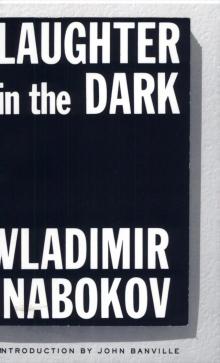 Laughter in the Dark
Laughter in the Dark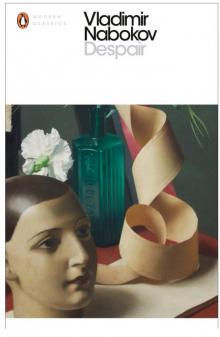 Despair
Despair Mary
Mary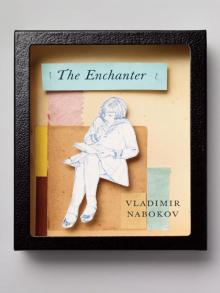 The Enchanter
The Enchanter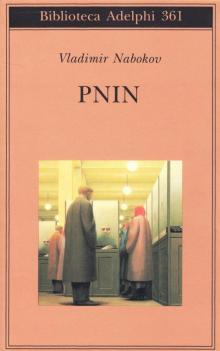 Pnin
Pnin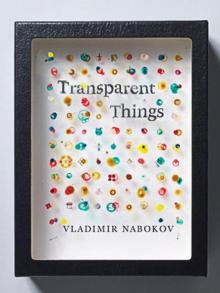 Transparent Things
Transparent Things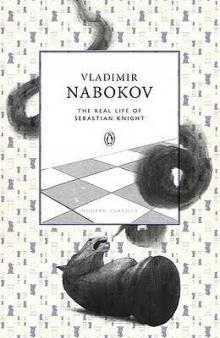 The Real Life of Sebastian Knight
The Real Life of Sebastian Knight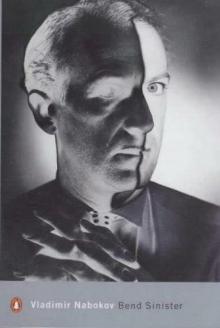 Bend Sinister
Bend Sinister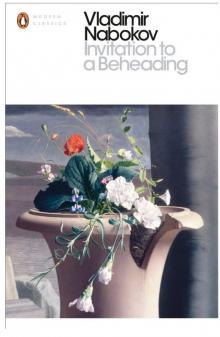 Invitation to a Beheading
Invitation to a Beheading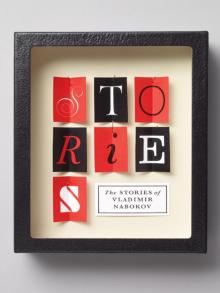 The Stories of Vladimir Nabokov
The Stories of Vladimir Nabokov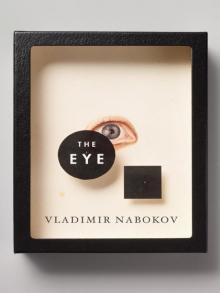 The Eye
The Eye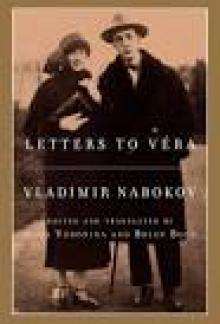 Letters to Véra
Letters to Véra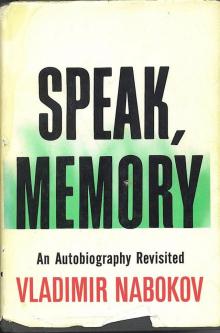 Speak, Memory
Speak, Memory The Gift
The Gift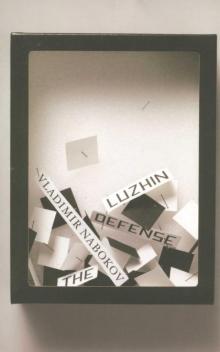 The Luzhin Defense
The Luzhin Defense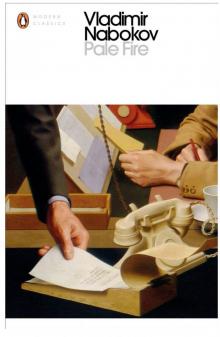 Pale Fire
Pale Fire Glory
Glory Man From the USSR & Other Plays
Man From the USSR & Other Plays Vladimir Nabokov: Selected Letters 1940-1977
Vladimir Nabokov: Selected Letters 1940-1977 Strong opinions
Strong opinions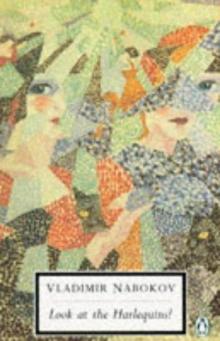 Look at the Harlequins!
Look at the Harlequins!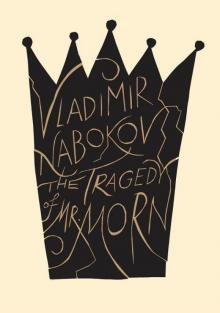 The Tragedy of Mister Morn
The Tragedy of Mister Morn Ada, or Ardor
Ada, or Ardor Lectures on Russian literature
Lectures on Russian literature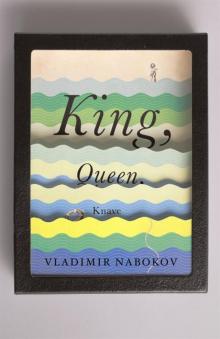 King, Queen, Knave
King, Queen, Knave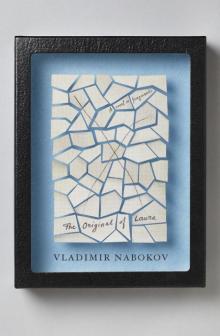 The Original of Laura
The Original of Laura